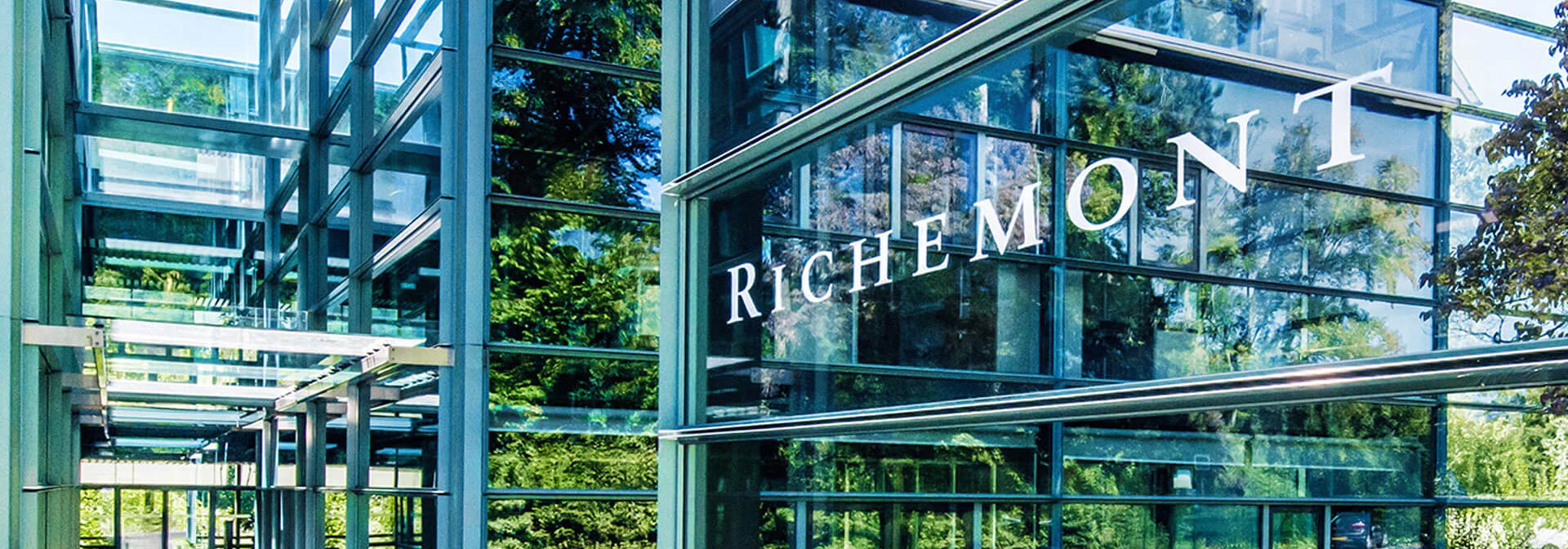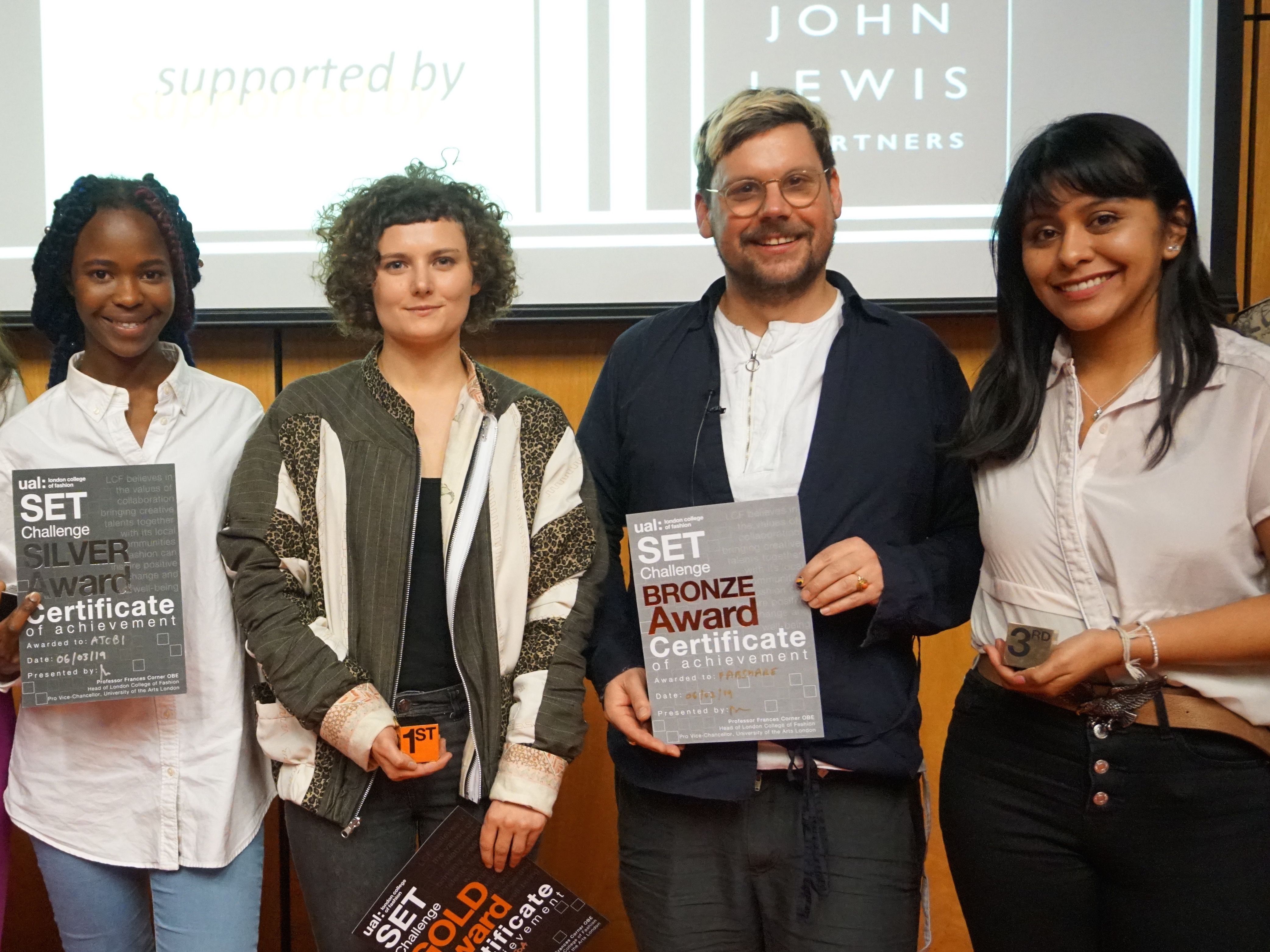Maria Teresa Flores recently finished her MBA at LCF. During her time at the college, her interest for the sustainable side of the fashion industry grew exponentially, which led her to develop several projects tackling different environmental and social issues caused by fashion practices. She also took the theory into practice by presenting her ideas to different brands, participating in the Kering Award 2018, as well as the Richemont OpenVisionnaire Challenge in 2019. In this interview, she shares her thoughts on sustainability in the context of luxury fashion.

Hi Maria. You've been involved in different projects focused on sustainability. What does sustainable fashion mean to you?
Sustainable fashion means producing items using methods that minimise their environmental impact and do not exploit people; it means making good quality products that will last for a long time and will be loved by the person who owns them. Sustainability can be considered along the whole fashion value chain, for example, substituting plastic for natural fibres or reducing unnecessary packaging.
Companies can also promote change by scrutinising their suppliers and allocating supply contracts to companies which uphold stronger workers’ rights or environmental practices. It is extremely important to assess the impact fashion production has. Minimising waste is an obvious starting point, and companies should take responsibility for their waste by finding alternative uses or eliminating unnecessary waste.
By putting sustainability first, businesses can view these problems as opportunities to reduce waste, reuse materials and recycle fibres.
How do you see the industry developing in the future?
We have a lot to do here in the UK and everywhere. There are urgent issues like high consumerism, the overstock of products and companies wasting resources. This happens in many countries around the world, and they need to be looked at as opportunities to make things better.
I think there wasn’t a lecture or a talk during my time at LCF that an issue around sustainability was mentioned, and I'm glad it was like this because it means that there are people who care about building a more responsible future in the industry. LCF is educating the future fashion industry leaders and helping them to shape their mindsets.

What defines luxury for you?
I see luxury as handcrafted, unique items made with love and using techniques to minimise waste and its impact on the planet. It's something I could wear and keep for decades.
You participated in the Kering Award 2018. How did you develop the idea for your project?
I worked on developing a project for the jewellery brand Pomellato using lapis lazuli, a precious stone from my home country Chile, at the same time as empowering the community of people who live around the mine where the stone is sourced from. This community is formed of a group of artisans who have been working with this stone for years, but they need better tools, machines and training.
Additionally, the idea was to have a traceable source of the stone for Pomellato, which would would provide transparency to raw material supply. It was very insightful for me to have this kind of real-world experience, and receiving mentoring from the jewellery brand and LCF's Centre for Sustainable Fashion.
You were also selected to be part of the OpenVisionnaire Challenge by Richemont in 2019. What can you tell us about this experience?
My team was shortlisted for the final of the international competition organised by the Richemont group. I went to Geneva with my teammate Deborah De Mello (MA Fashion Futures graduate) to present our concept ‘Unboxing the Future’. The idea was to improve packaging and reduce waste by using a digital booklet to minimise paper usage.

It was an incredible experience! We visited Richemont's beautiful headquarters in Geneva and had the opportunity to pitch our idea to dozens of their employees. It was a competition open to all students in Europe, so we felt very proud for being invited.
You recently finished your MBA at LCF. What have you enjoyed the most about the course?
Yes, I finished the MBA in September and it was a great experience! Apart from the two competitions I already mentioned, I developed another idea with an MBA colleague, Tobias Ebel. We presented an idea called FABshare for the SET Challenge 2019 at LCF. It was about developing a marketplace for deadstock fabrics and making them available for students and small designers. For my MBA final project, I researched this topic further and I developed a toolkit with solutions to extend the life of deadstock fabrics.
I think the fact that I participated in these competitions has helped me to shape a sustainability in fashion mindset.

- Connect with Maria Teresa on LinkedIn
- Find out more about studying the MBA at LCF
- Explore LCF postgraduate courses
- What’s on at LCF: open days and events



